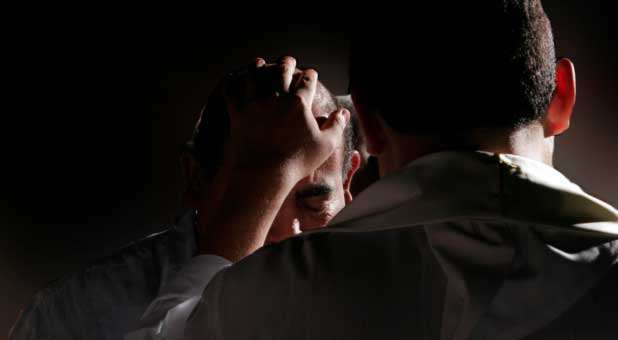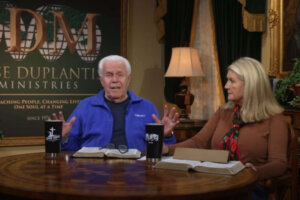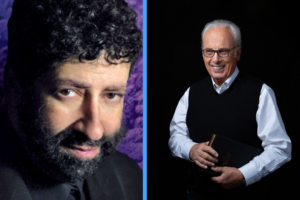The gifts of the Spirit are given to fulfill the mission of the Church. We have a great variety of gifts the Spirit brings to us personally and to the church as a whole because of Christ.
Perhaps if you’ve ever heard a description of the gifts of the Spirit, you have had that description limited to the nine gifts described from 1 Corinthians 12. That was my thinking for many years as I looked at the Scripture—that there are nine gifts of the Spirit. But I think a more serious study of Scripture has to take into account three major “gift passages” in the New Testament—gifts for the glorification of God, the reaching of the lost, the discipling of the found and the serving of human need.
First, Romans 12:6–8 lists seven gifts, often called motivational gifts. Second, the nine gifts in 1 Corinthians 12:7–11 are sometimes called the spiritualities (spiritual gifts). In 1 Corinthians 12:7–11, they’re not referred to as gifts but as pneumatika, from the Greek pneuma which means “spirit.” The people in the Corinthian church had a lot of carnalities, so Paul is saying, “In opposition to the carnalities, let me talk to you about the spiritualities.” The third set of gifts—ministry gifts—are listed in 1 Corinthians 12:27–31. Ephesians 4:11–13 describes additional ministry gifts.
Motivational gifts are those gifts that explain the motivation of the people in the Body to minister to one another. We go past that to spiritual gifts, often called the charismata, which means “graces.” They are grace gifts of God. Then there are ministry gifts—gifts that apply to an office in the church.
Let me quickly summarize the use of the gifts.
(1) The gifts are for Christians. You can’t receive the gifts or function in these gifts—which are meant to glorify God, to build up the Body, to save the lost, to serve human need—unless you first receive the gift of salvation. The gifts are meant to flourish among those who are baptized in the Spirit. Spirit baptism plunges a person into new dimensions of intimacy with God and empowerment for witness.
(2) The gifts are given for the benefit of the Body and for Christ’s work in the world. No gift is more glamorous than another. People tend to especially consider miracles and healing as being more outstanding than the other gifts. The gifts are not given that we might be bigger stars, but that we might be better servants.
(3) The gifts should never be divorced from love. Paul told us in 1 Corinthians 14:1 to “follow the way of love and eagerly desire spiritual gifts.” 1 Corinthians 13 is a reminder in the middle of a section dealing with spiritual gifts that we are to walk in the way of love.
(4) The gifts should not be confused with spirituality. Some people measure their spirituality on the basis of their gifts. The gifts often have little to do with spirituality. They have to do with getting the work of the Lord done. There are going to be people, as Jesus said in Matthew 7, who stand before Him on that Day and talk about the wonderful work they did for Christ. And the Lord is going to say, “I never knew you.” I’ve known people who have had real gifts of the Spirit in operation but who have been apostate in their life and character. Once given, the gifts are irrevocable. They can still function. The gifts are not to be confused with spirituality, so we shouldn’t follow after people simply because they have gifts.
(5) The gifts are often matched with natural inclinations and abilities. People who have a tender heart are often the ones functioning in the gift of mercy. People who are highly organized are often functioning in the gift of teaching. People who are naturally happy and glad are usually functioning in the gift of exhortation. The gifts aren’t natural inclinations, but they often build from a base of natural inclinations.
(6) The gifts tend to be developmental in nature. That’s why we’re told in 1 Corinthians 14 to perfect the gifts. Jesus said, in Luke 19, that to him who has, more will be given. We need to continue using the gifts to see them developed. All the gifts are this way.
(7) The gifts are not proprietary. They are not my gifts, or, I’ll use them whenever I want to. They are for the Body.
(8) The use of each gift will be confirmed by the body of Christ. There’s no true ongoing function of a gift unless it has ratification from other believers. That’s why we need to encourage and affirm one another.
(9) Individual exercise of a gift emerges from a combination of desire, prayer and need. What are the desires that God has placed in my heart? What comes to me while I’m praying? What need is the Holy Spirit calling me to address? It’s when we consider the matrix of these things—desire, prayer and need—that God begins to individually appoint us to our particular mission, our unique calling.
(10) The last thing about the gifts is perhaps surprising: only a few of them occur in a church service. If you look carefully at the gifts of the Spirit as they occur in the Book of Acts, the gifts mostly occur in the marketplace. The majority of them occur in everyday service to Christ or in the functioning of the Body outside of the worship service, in ministry to the world.
Some assume that when we come to a service, the Holy Spirit is limited to working in that service. When the church is dispersed the rest of the week, some think of the Spirit as inactive, waiting to work until we assemble again. But the Spirit wants to work throughout His body every day of the week. He seeks to bring His people into wholeness. We need—the Church needs—the gifts of the Spirit.
George O. Wood is general superintendent of the Assemblies of God.
See an error in this article?
To contact us or to submit an article






















